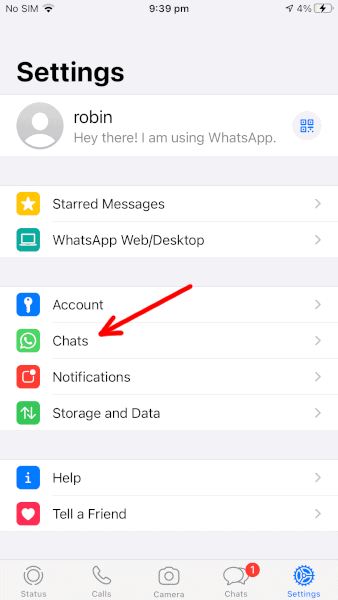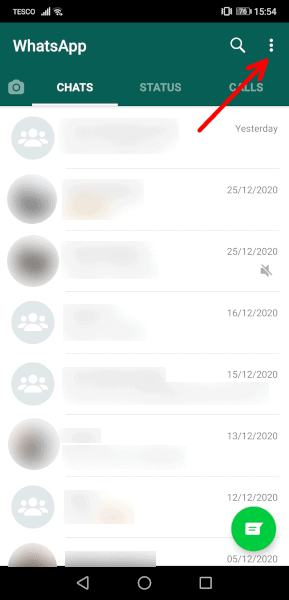How to Backup and Restore WhatsApp Chat History in 2025: Secure Your Correspondence
Unless you manually backup WhatsApp, you can easily lose access to important conversations, or worse, your contacts themselves. Here's how to backup WhatsApp to ensure that doesn't happen.
Whether you’re about to move to a new device or just worried about losing your conversations, there are many reasons why you should backup your data. Helpfully, some apps — including WhatsApp — have ways to backup your data automatically. In this article, we’ll show you how to backup WhatsApp messages and attachments on your phone.
Key Takeaways:
- You can backup WhatsApp messages from within the app.
- By default, Android devices use Google Drive and iOS devices use iCloud for the backup.
- There are other services that can store the backup you create.
- You can recover your WhatsApp chats during the installation process.
Although you can create a local backup on your phone, you can’t easily use it to move conversations to a new device and it won’t protect anything from most cybercrime or physical damage. Instead, you should keep a copy in the cloud. Luckily, it only takes a few taps to save all your WhatsApp data to either Google Drive or iCloud.
How to Backup WhatsApp on iPhone
For most Apple device users, you’ll want to backup your WhatsApp chats to your iCloud storage — and you can read more on this service in our full iCloud review. You could backup everything on your iPhone, but the best way to backup just WhatsApp is to use the backup feature that’s built into the app, which is a simple four-step process.
- Tap “Settings”
When you open WhatsApp from your home screen, you’ll notice five buttons along the bottom. Select the option on the far right, labeled “settings.”
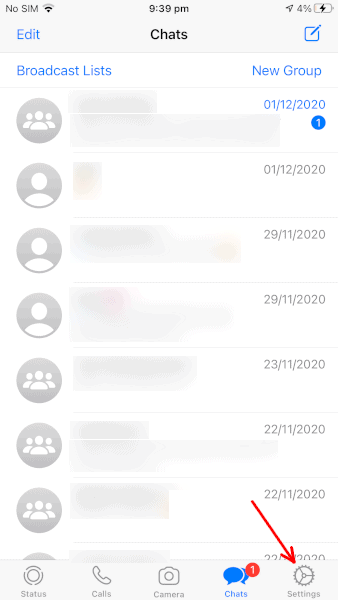 In WhatsApp, tap the “settings” icon in the bottom-right corner.
In WhatsApp, tap the “settings” icon in the bottom-right corner. - Select “Chat Backup”
Choose “chat backup” from the “chats” page.
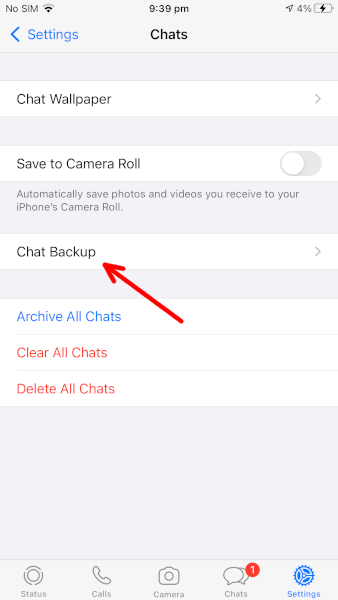 Go into your chat backup settings.
Go into your chat backup settings. - Tap “Back Up Now”
You can either tap “back up now” to start the backup process or select “auto backup” and change your backup frequency.
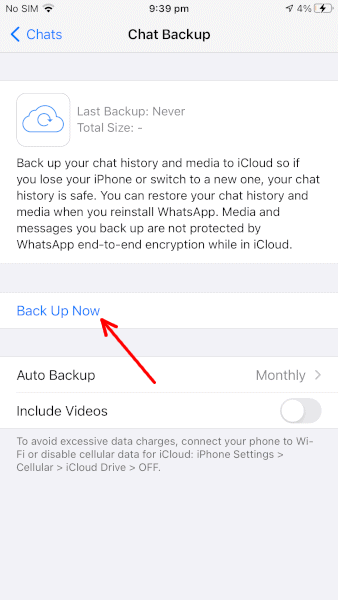 Tap “back up now” to start creating a backup.
Tap “back up now” to start creating a backup.
How to Backup WhatsApp on Android
Although the process is similar, WhatsApp puts its buttons in slightly different places on Android devices. It’ll also save everything to your Google Drive account. Note that with this service, you give up some privacy and security in return for high speeds and a great third-party integration — and you can find out more in our full Google Drive review.
- Tap “Settings”
Choose “settings” from the dropdown list.
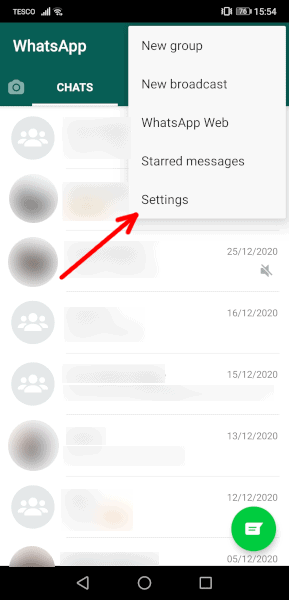 Choose “settings” from the dropdown menu.
Choose “settings” from the dropdown menu. - Go Into “Chats”
In WhatsApp’s settings, tap “chats” to get access to your conversation settings.
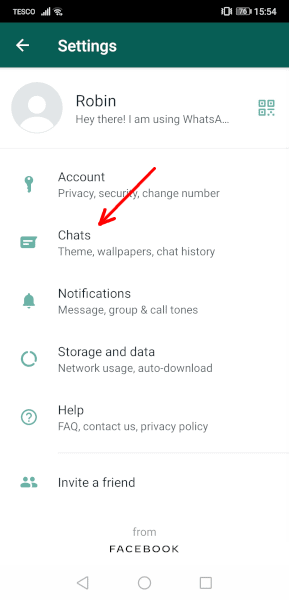 Go into your “chats” settings.
Go into your “chats” settings. - Select “Chat Backup”
You’ll find “chat backup” near the bottom of the page, next to an icon in the shape of a cloud.
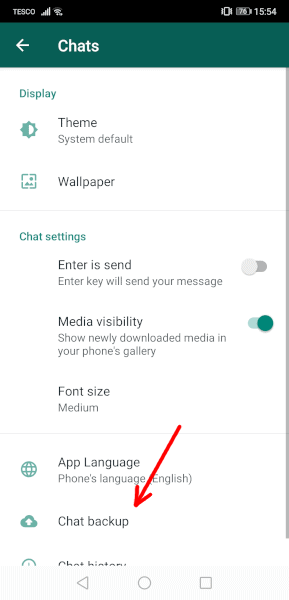 Tap “chat backup” for your backup options.
Tap “chat backup” for your backup options. - Tap “Back Up”
Tap on “back up” to do a manual backup or “back up to Google Drive” to set your backup frequency. If you haven’t connected your phone to a Google account, it will only create a local backup.
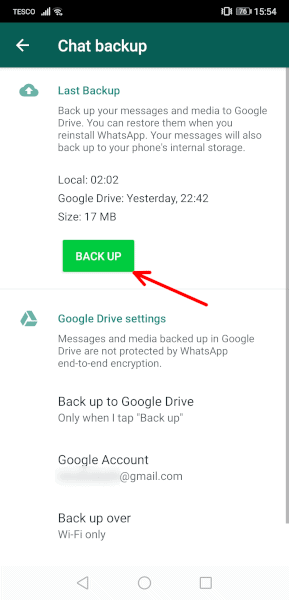 Start to back your messages up to your Google drive.
Start to back your messages up to your Google drive.
Store Your WhatsApp Backup in the Cloud
With neither iCloud nor Google Drive being among the best cloud storage services for security, you may be worried about the privacy of your conversations. Luckily, you can use a more secure service by saving your backup files to your preferred remote storage app.
1. Sync.com
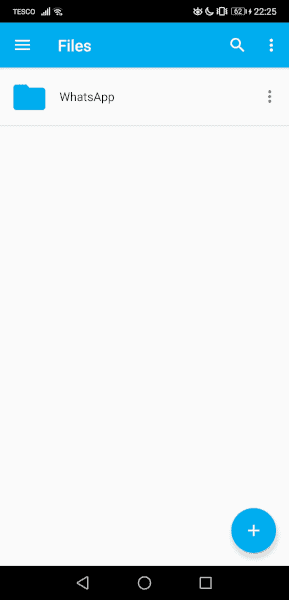
At this point, it’s no surprise that Sync.com is our favorite cloud storage provider. Although our full Sync.com review goes into more detail, when it comes down to it, 2TB of space with high-end security for both PC and mobile devices at only $8.00 per month is practically unbeatable, plus you can get 5GB of cloud storage for free.
2. pCloud
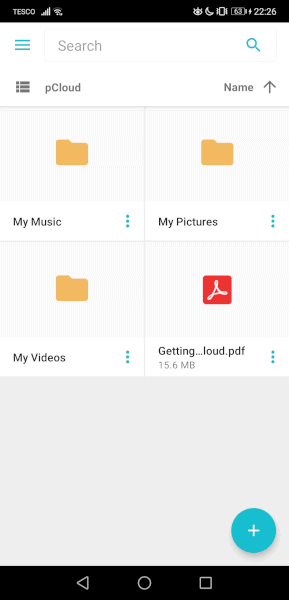
Despite pCloud’s odd choice to make zero-knowledge encryption a paid add-on, pCloud and Sync.com are closely matched. If you’re looking for ease of use and speed, and you’re willing to pay extra for security, check out our full pCloud review. You can get started with 10GB of free cloud storage.
3. Icedrive
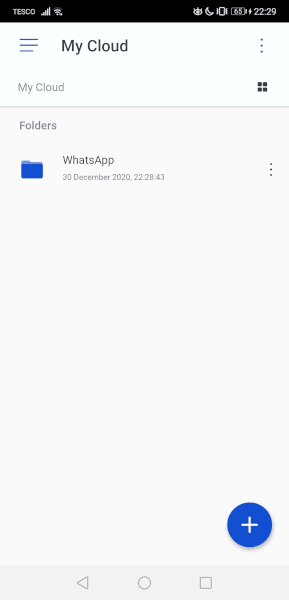
Although it is newer to the cloud storage scene, Icedrive ties with Sync.com in our comparison. It doesn’t lack much in any category, including providing 10GB of free space — even if its customer support could be improved — and it’ll definitely keep your data safe. So if you’re willing to go for a younger service, read our full Icedrive review for more information.
How To Restore Your WhatsApp Backup
To restore WhatsApp from a backup, you’re going to need to reinstall it from an app store, such as Google Play. However, as WhatsApp limits how often you can receive verification text messages to a specific phone number, you should make sure you know what you’re doing before you begin.
- Give WhatsApp the Necessary Permissions
In order to restore your WhatsApp message history, you’ll need to allow access to your contacts, photos, media and files. Start by tapping “continue.”
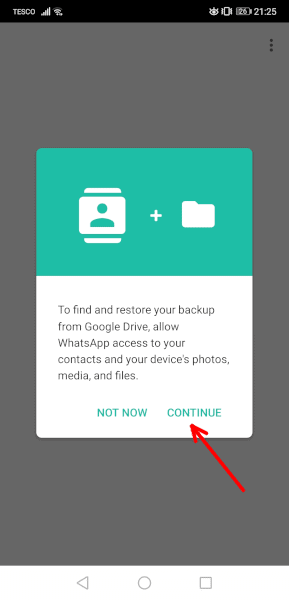 You need to tap “continue” to start the process.
You need to tap “continue” to start the process. - Tap “Allow” on Each Permission
Make sure to allow every permission that WhatsApp asks for, or else you won’t be able to restore your messages.
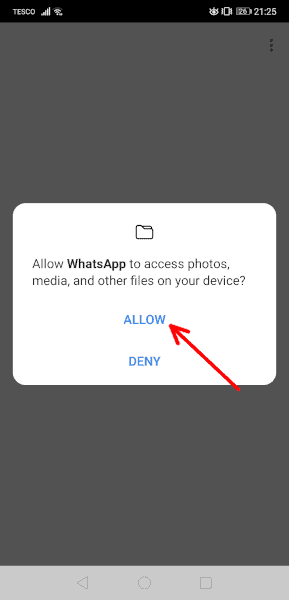 Allow the permissions that WhatsApp asks for.
Allow the permissions that WhatsApp asks for. - Start Restoring WhatsApp
After it has found a backup file, check that it’s from the source you expected and tap “restore” to recover all of your conversations.
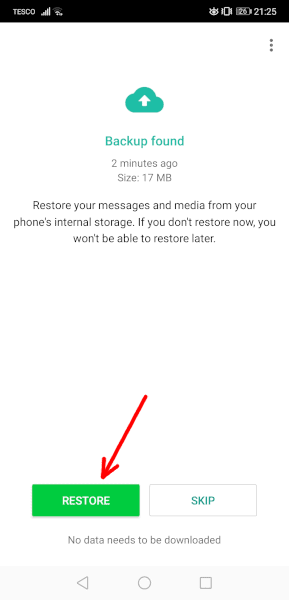 Check to make sure it’s recovering from the right email address and tap “restore.”
Check to make sure it’s recovering from the right email address and tap “restore.” - Finish Setting Up WhatsApp
Once you’ve restored your WhatsApp chats from the backup, tap “next” to finish setting it up.
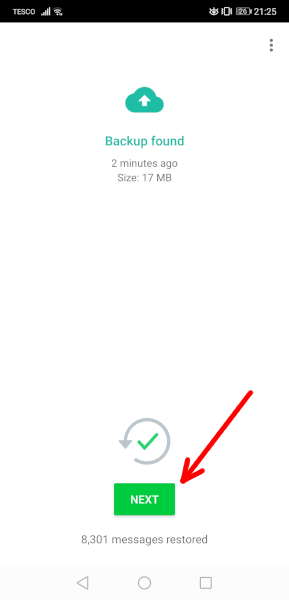 Tap “next” and finish setting up WhatsApp.
Tap “next” and finish setting up WhatsApp.
Final Thoughts: How to Backup WhatsApp
Whether you’re an iOS or an Android user, there’s no reason you can’t backup your WhatsApp chats and conversations. You can then use this backup to quickly recover all of your messages, as well as any photos, videos and other attachments that have been part of a conversation.
If you have saved your WhatsApp data to the cloud but can’t see it in there, be sure to look in your backup folder. Providers often keep this separate, so people don’t damage their backups by accident, but you can usually still access it through the official web page on your computer.
However, if you don’t need to use this recovery feature and are limited in space, you can instead use the “export chat” option under “chat history.” This’ll create a text file of the conversation you had with one person. You can even ignore photos and videos, so it doesn’t take up too much memory.
Keep in mind that to accomplish the backup you’ll need a reliable VPN to bypass the WhatsApp ban in Dubai and other countries where WhatsApp is banned. We also have a guide on how to unblock WhatsApp in China.
If you don’t plan on using WhatsApp anymore, our guide will help you understand how to delete your WhatsApp account. Plus, we also have a guide on how to recover data from a broken phone, in case you need it.
Have you tried to backup WhatsApp on your phone? Did you use one of these methods to keep your conversations safe? Let us know your thoughts in the comments section below. Thanks for reading.
FAQ
The easiest way to backup WhatsApp is with the built-in feature that lets you save your chats to either iCloud or Google Drive — on iOS or Android, respectively. Simply go into “settings,” “chats” then “chat backup.” Here, there will be a backup button and an auto-backup feature that you can set up.
When you install WhatsApp on your phone, it will ask you if it should restore chat histories. Make sure that your backup is on your device or your connected cloud storage — either Google Drive or iCloud — before downloading it, and then choose that option when it appears.


